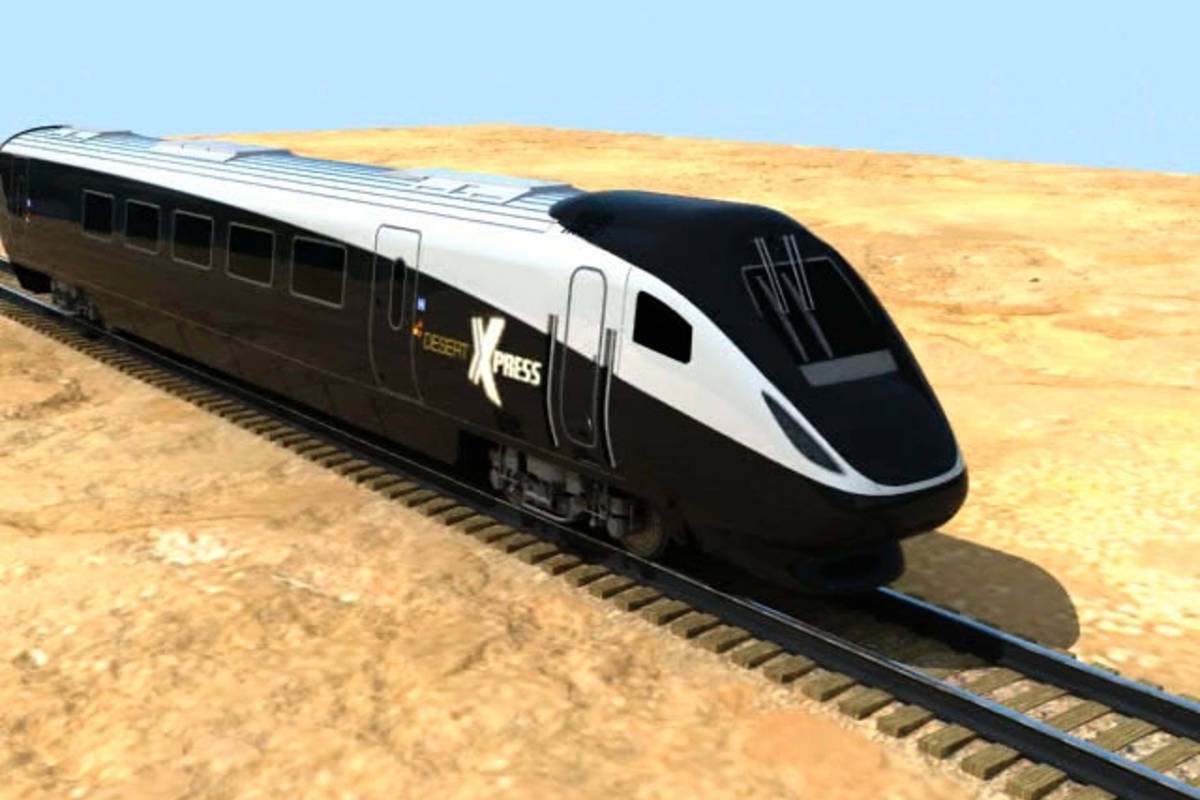EDITORIAL: Handouts may soon be coming to Vegas-SoCal train
When Brightline West took over the planned high-speed rail project between Las Vegas and Victorville in 2018, the idea was to use private funds to finally bring the long-envisioned project to fruition. The company made a name for itself by developing the only privately run intercity rail line in the country, in Florida.
Turns out, however, that the taxpayers aren’t safe after all. Funny how that works out.
The Review-Journal’s Gary Martin reported this week that, thanks to the handiwork of Rep. Dina Titus, Brightline West may soon be eligible to receive federal transportation funds under the $547 billion Invest in America Act. While the language of the bill has yet to be finalized, Rep. Titus said she has worked closely with Rep. Peter DeFazio, the Oregon Democrat who chairs the House Transportation Committee, to amend the legislation to allow certain “private” rail projects to tap federal cash as long as they partner with a public entity.
None of this should be surprising. Brightline West officials have repeatedly oversold the project’s financial viability and have backed off their previous construction timetable because investors wouldn’t bite. Despite receiving $800 million in private-activity bonds from California and Nevada — which could be leveraged to raise four times that amount — Brightline was forced to pull a planned bond sale last year because of a lack of interest. It will now have to reapply for the bonds and claims to be preparing for a 2022 reboot.
The pandemic didn’t help, no doubt. But the fact that some version of this proposal has been floating around for more than 30 years with so little to show for all the promotion and hype indicates that the challenges remain vast and that the project’s viability may be more complicated than the optimistic promises suppose.
All that would be irrelevant if Brightline West raised enough private capital in the markets to give it a go and live with the results. But now it appears increasingly likely that the company will sidle up to the federal trough, leaving taxpayers rather than private investors to assume much of the risk. And the risk will not be insignificant. The Victorville-to-Vegas train will cost $8 billion, but if history is any guide, the final price tag will be much higher. Witness the ongoing fiasco in California involving the L.A. to San Francisco rail line money pit.
Perhaps a train shuttling gamblers from Victorville to the Strip will turn out to be a gold mine for Southern Nevada. Perhaps not, given that even heavily subsidized Amtrak couldn’t maintain a similar route and airline travel remains more convenient for many travelers. Either way, the taxpayers may soon be forced to find out.






















